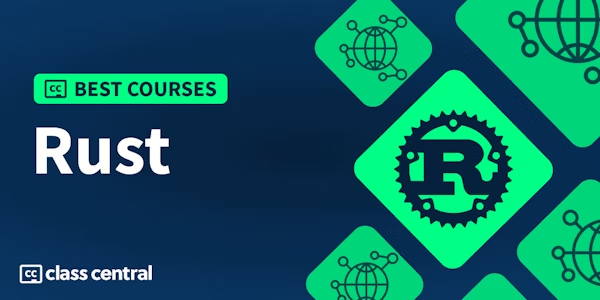Go from zero Rust knowledge to being able to build your own complete Rust programs! You’ll learn the foundations of Rust, what makes it so performant when to choose to use it for your projects. You’ll use Rust’s built-in data types and standard libraries, add-in packages from Rust’s package ecosystem, and dive into Rust-specific concepts like ownership, borrowing, and lifetimes. Along the way, you’ll pick up some low-level programming concepts that can help you better understand the other languages you use.
Overview
Syllabus
- Introduction
- Strings
- Floats & Mutability
- Rust Q&A
- Numeric Types & Type Annotations
- Integers
- Booleans, Conditionals, Statements, and Expressions
- Statements and Expressions Q&A
- Primitives Recap and Q&A
- Primitives Exercise
- Primitives Solution
- Tuples
- Structs
- Arrays
- Memory
- Collections Recap and Q&A
- Collections Exercise
- Collections Solution
- Enums & Pattern Matching
- Methods
- Type Parameters
- Pattern Matching Recap and Q&A
- Pattern Matching Exercise
- Pattern Matching Solution
- Vectors
- Stack Memory
- The Heap
- Vectors Recap and Q&A
- Vectors Exercise
- Vectors Solution
- Heap Bookkeeping
- Manual Memory Management
- Rust Memory Management
- Ownership
- Ownership Recap & Memory Exercise
- Memory Solution
- References & Borrowing
- Mutable References
- Slices
- Borrowing Exercise
- Borrowing Solution
- Lifetimes
- Lifetime Annotations
- Lifetime Elision
- The Static Lifetime & Lifetimes Recap
- Lifetimes Exercise
- Lifetimes Solution
- Wrapping Up
Taught by
Richard Feldman

